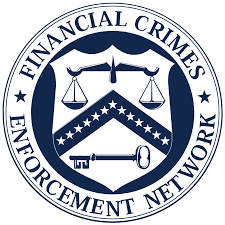
04 Dec Banking Restrictions Removed for Hemp Businesses
Yesterday, the Federal Reserve, along with the Financial Crimes Enforcement Network (FinCEN) and other agencies, issued guidance advising financial institutions, including banks, that they no longer need to file “suspicious activity reports” (SARs) with the U.S. Treasury when they take customers in the cannabis industry if their business is limited to hemp. As we know, the Agriculture Improvement Act of 2018 (the Farm Bill) removed hemp and hemp-derived products from the list of controlled substances under the Controlled Substances Act. In late October, the USDA issued interim final regulations to implement the Farm Bill. Under those regulations states will need to obtain USDA approval of their plan to regulate the growth and sale of hemp products, or individual companies can apply for a federal license to do so. No state or company yet has obtained USDA approval of a plan.
In 2014, FinCEN issued guidance to financial institutions which required the filing of SARs when taking on a “marijuana related business” (MRB) as a customer. It also requires due diligence on potential customers and monitoring of their compliance with Justice Department enforcement priorities. The new guidance makes clear that these guidelines continue to apply to other MRBs that are not in the hemp business.
The new guidance states, “Because hemp is no longer a Schedule I controlled substance under the Controlled Substances Act, banks are not required to file a Suspicious Activity Report (SAR) on customers solely because they are engaged in the growth or cultivation of hemp in accordance with applicable laws and regulations.” Note the last seven words, requiring the hemp grower to be growing in accordance with laws and regulations. What this does not clarify is whether a hemp customer of a financial institution must be operating under a federal USDA license or in a state with a USDA-approved program. If so, the implementation of this guidance, and the ability of banks to avoid SAR filings, would have to wait until those programs are approved under new USDA rules issued under the Farm Bill.
Something else that is not totally clear is whether the due diligence and monitoring obligations under the 2014 FinCEN guidance still apply to banks taking on hemp companies. The new guidelines are silent on this even while addressing the elimination of SAR filings as required by the 2014 guidance. It appears that the agencies intended to vitiate the application of all aspects of the FinCEN guidance for lawful hemp businesses, but it might be helpful if this could be clarified. Otherwise, this is clearly a positive and appropriate development in the full legalization of hemp and hemp-derived products.


No Comments